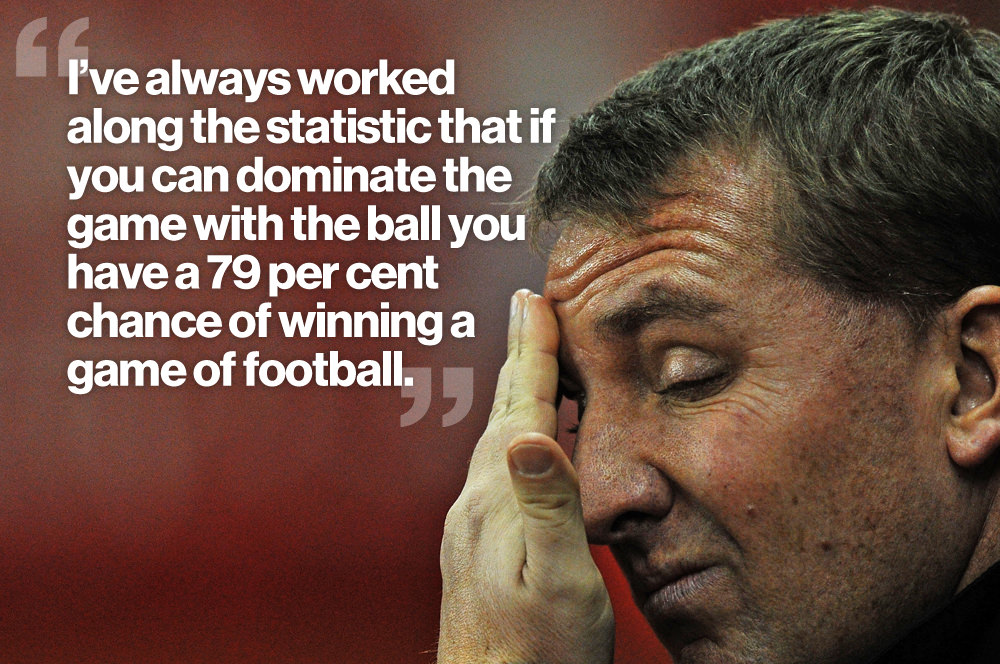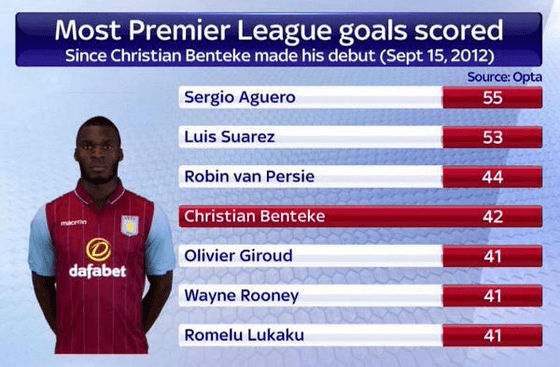Admittedly, Jürgen Klopp’s tenure at Liverpool FC hasn’t been, Rocky Balboa’s immortal words, “all sunshine and rainbows.” The Reds are sweating it out in their tracksuits, but are still a few flight of stairs away from the coveted top-4 landing that would see them barge through that lit door and into the glitz and the glory of the Champions League. Pyros, flags, songs, goosebumps, the works.
‘Injuries’ and ‘Liverpool’ has had more column inches than the football we play, we’ve had grounding defeats to teams who are deemed to be ‘lesser’ teams, and we’re yet to experience the sheer latent energy of KAMEHAMEHA-football of 2013-14, that blew minds to yonder.

But I urge Liverpool fans this; do not be deceived.
To properly analyse the game that is football, it is not merely one that can be done by seeing a figure and what it represents, and then drawing a conclusion from it. That’s why stats are worthless in football when used in isolation (well, some of them at least). That’s why you don’t gauge how good a striker is just by the number of goals scored, or a ‘keeper by the number of clean sheets kept, and so on, and so forth. What’s missing from what is arguably the most famous sport in the world is one thing.
Context; why on Earth this isn’t being used more in analytical, statistical, or tactical discussions – I’ll never know, but without context, numbers mean very little. I think this is what I really want Liverpool fans to not be deceived by – the numbers. See, Twitter only allows for 140 characters within a single tweet. It facilitates short-forms and numbers, but it doesn’t facilitate context for the most part, so to take anything as gospel could paint an inaccurate picture about the subject matter.
“Brendan has higher PPG (Points per Game) stats than Jürgen”
Maybe so and maybe PPG might be your cup of tea with regards to assessing how good a team is doing, but just how accurate is it? I mean, it doesn’t consider the inherent issues that come with changing managers midway through the season – adapting to a new team (and/or league) in a footballing aspect, learning about the other teams within the league, and the transitional period from one manager’s philosophy and instructions to another, among many others.

Managers do have their blips in tactics and team selections, but there are cases of players just failing to perform for their managers. The latter is not reflected within PPG, but just how objective is it? You can’t just watch a game over and say that a loss was 37.25% down to the manager, and similarly for players too.
It also doesn’t consider the situational aspects of the game – like injuries, or fluctuating forms, or the butterflies within butterfly effect moments of games. Jürgen Klopp came to a club where the players were nowhere as fit as what is deemed to be ideal, where consistently good performances is scarce, where first shots on target leads to a conceded goal, where aerial balls were a dominant factor in the team’s overall weakness. PPG doesn’t account for these factors whatsoever.
“Christian Benteke scored double-digit goals at Villa, why not at LFC?!”
Again, goals alone doesn’t show everything, unless you rack up a 100+ goals consistently for a top team at the highest level, then maybe you’re onto something; just maybe.
Non-penalty goals (NPG) are a slightly more accurate stat than just goals by removing one of the easiest ways to score a goal (hence why players dive for them, anyway). Then breaking those NPG’s to open-play goals, from set-pieces, from inside/outside the box, from headers, from rebounds/tap-ins, and so on would make it an even more accurate stat. Even so, it doesn’t show how many of those goals can be translated from team to team, or league to league.

I’m of the opinion that classifying a striker as a good one is more than just the number of goals scored, despite it being perceived as the end-all, be-all. I believe that shooting technique, off-ball movement, number of (clear cut) chances converted into goals, positional awareness and intelligence, and interactivity with the players around him are some traits that should be focused on instead. Assessing one’s abilities may be a better barometer for analysing just how one could perform despite switching clubs or moving to another league.
This is what Christian Benteke (and Andy Carroll early on) struggled with. The change in styles of play and the general requirements have hampered their ability to score goals. Perhaps the instructions given in the past were to “score goals; keep us above relegation zone”, and now the number of instructions have multiplied significantly. Tactical analysis could shine some light on this, but for now, let’s not say that the problem is solely with Liverpool and hardly with Christian Benteke simply because he “performed” at Aston Villa. Patience is key.
“Liverpool are in [insert mid-table number here]th?! We’re doomed!”
In a Premier League season where (as at 27/1/2016) the title race is as close as ever (a grand, grand total of 3 points separates the first and third placed teams), where a 3-game swing could see the 10th place team move up to the reaches of Top 4, and a season where every team has a solid chance of beating any other team, doom and demise are the least possible fates for Liverpool FC.

Again, a mere league position number doesn’t tell the whole story. Granted, the Reds have had a topsy-turvy season, with fluctuating levels of performance that resemble the worst roller-coaster rides for the feint-hearted, but it’s not all doom and gloom (I promise you this).
I’ve said this on Twitter and on several podcasts a handful of times now, but I believe it needs to be said again: I’m a firm believer of performance over results. A great performance hampered by the aforementioned butterflies which leads to losses doesn’t necessarily mean that a team is in bad shape. The opposite also holds true, in that constant, short-term 1-0 wins coming from lucky goals, with the team suffering from waves and waves of attacks doesn’t necessarily indicate that a team’s doing well.
Without even taking football into account, luck will run out sooner or later. Something’s got to give. The 0-1 loss to Manchester United is a good one; Liverpool dominated the game and was arguably (maybe not even arguably) the better team bar a spell of 10-15 minutes, but still loss due to a goal that stemmed from a weird blend of poor aerial defending, poor man-marking, a lucky rebound off the post that landed on the feet of Wayne Rooney, poor goalkeeping, and unfortunate circumstances.
Liverpool’s plot right now is very much like Rocky I . But if Liverpool can box teams like Arsenal, Manchester United, Chelsea, and Manchester City to a corner, there’s no reason why we can’t stand atop the turnbuckle, chest out, the coveted silverware held aloft.




















